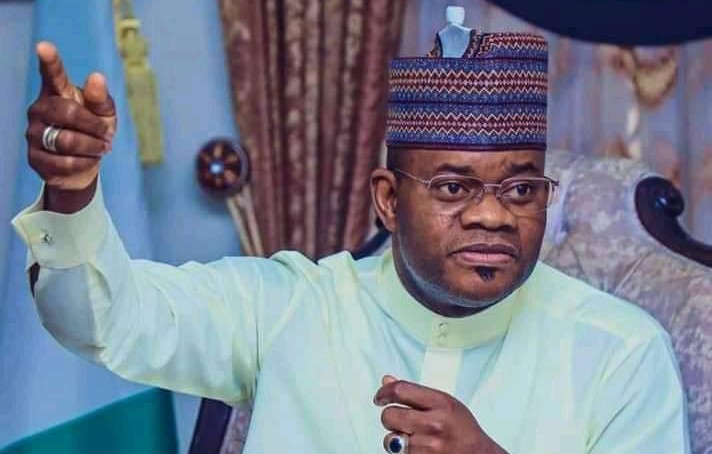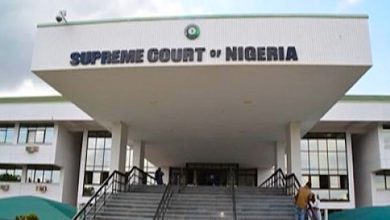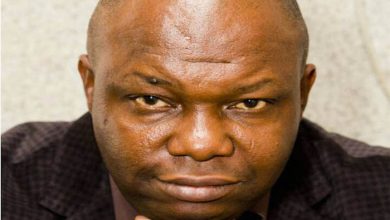EFCC Versus Yahaya Bello: What’s The Role of DSS, Police?

By Kenny Osifisan
The immediate past governor of Kogi State, Yahaya Bello, now appears to be larger and higher than the laws of the land.
Though he no longer has immunity having left office as governor since January this year, it has become impossible to arraign him in court to answer charges of allegations of N80.2bn money laundering levelled against him by the Economic and Financial Chimes Commission (EFCC), because of powerful hands in this current administration.
In the past nine months, Yahaya Bello, because of the support of people in government, has continued to enjoy protection by some government security agencies in the country to defeat and slow down the course of the law.
With these backings, Yahaya Bello has refused to appear in court to answer the charges against him being by the EFCC.
While the EFCC is the right agency by law to prosecute the ex-Governor over the alleged money laundering case, what has become the roles of the DSS and the Police according to their duties and obligations to the Nigerian Constitution?
The protections of Yahaya Bello directly role indirectly by these government security personnel also mean that their loyalty is not to the Federal Republic of Nigeria, which they all swore to protect and defend at all times.
Can this really happen in other climes that a person declared wanted by a court of proper jurisdiction is not only seen by government security personnel, but being given protection?
Rather than arresting Yahaya Bello as a wanted man and handing him over to the prosecuting agency, these government security agencies have turned blind eyes and ears and continued to build a web of protection around Yahaya Bello as if he is still enjoying immunity of a sitting governor.
Looking at it critically, what is going on now in Yahaya Bello’s case is against international norms and conventions.
When a citizen is been investigated for money laundering and other crimes, the international convention and norm is that the security agencies protecting that person must cooperate with the agency prosecuting that particular citizen. In fact, official security is immediately withdrawn from such person.
A case in point is that the whole world saw what happened during the investigation of the former President of the United States of America, Donald Trump.
Despite Trump’s previous position far higher than those ever occupied by Yahaya Bello, Trump was not treated as an individual above the law.
The security service personnel protecting Trump put the country first and cooperated with the FBI when it came to raid Trump’s house. They offered all the supports the FBI needed to carry out its job, which is the acceptable international norm.
But rather than do the same here in Nigeria, the security agencies protecting Yahaya Bello are obstructing investigations.
When Yahaya Bello, who has been in hiding for months, eventually sneaked into the EFCC car park to take pictures last week, he was said to be holding firmly to the hand of his successor and kinsman, Kogi State Governor, Alhaji Usman Ododo, who is presently enjoying immunity as a sitting governor.
In court on Wednesday 25th September, 2024, before Justice Emeka Nwite of the Federal High Court sitting in Maitama, Abuja, the lead prosecution counsel in Yahaya Bello trial case, Kemi Pinheiro SAN, had explained what transpired in the recent appearance of Bello at the parking lots of the EFCC.
He also pointed out that what played out was out of place despite both the trial court and Court of Appeal clearly ordering Bello to present himself for arraignment in the N80.2 billion money laundering charges preferred against him by the EFCC.
He said “There is nowhere my Lordship or the Court of Appeal ordered that Yahaya Bello present himself at the EFCC car park, but rather to appear before my Lordship for arraignment.”
“What is even more worrisome and disconcerting is that the defendant went to the EFCC car park holding the hands of a person with immunity who came with all the full security of his office”
“The implication, my Lord, is if there was an attempt to get him from the person of immunity, there would be an invitation to anarchy.
“The invitation by the EFCC later in the day for Yahaya Bello to come alone, not with a person with immunity, security persons and other people was resisted again on their own admission”, he said.
Continuing, Pinheiro said, “My Lord, we wrote a letter to the defendant’s lawyers drawing our colleagues’ attention that arraignment is not conducted in EFCC’s car park, but the defendant should be in court today according to the judgment of the Court of Appeal and this honourable court’s ruling”.
“The court must resist it Bello’s antics. It is a place of serious and solemn business”, he stated, as he specifically pushed for order of the court to sanction Bello’s lawyer, Agboyi, and be referred to the Legal Practitioners Disciplinary Committee, LPDC, for turning the court to a vaudeville.
Justice Emeka Nwite on Wednesday had to grant the adjournment of the case against Yahaya Bello, until October 30, 2024, for a ruling after the defence counsel A.M. Adoyi informed the court that the matter of Bello’s arraignment, which is under appeal, had been taken to the Supreme Court.
According to Adoyi, the Court of Appeal ruling on August 28, which directed Bello to appear before Justice Nwite for arraignment, had been challenged at the apex court.
While the law is still obviously been exploited by the defendant to delay the trial process, it is very important for the security agencies protecting Yahaya Bello to put Nigeria first in their assignments and beats.
They should follow the acceptable international conventions and norms to cooperate with the prosecuting agency, EFCC, towards getting justice and fighting corruption in the land. It is the constitutional obligations of the Police and the DSS to support and cooperate with the EFCC, not only on the Yayaya Bello case but on every other cases.
No individual should be allowed or supported to be bigger than the laws of Nigeria.
Kenny Osifisan, a public affairs analyst and good governance advocate, sent this from osifisankehinde269@gmail.com







